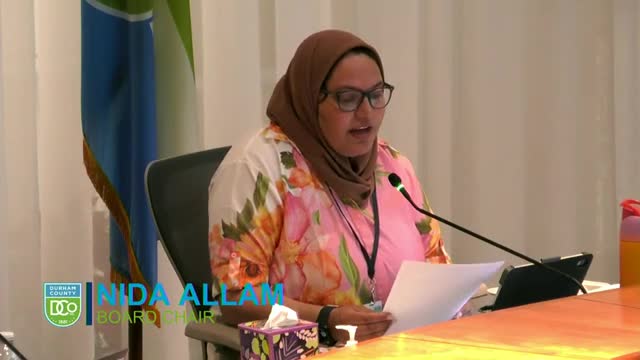Article not found
This article is no longer available. But don't worry—we've gathered other articles that discuss the same topic.

Votes at a glance: Durham County Board actions on consent items and closed session authorization

Durham County issues multiple proclamations: Second Chance Month, Fair Housing Month, Black Maternal Health Week and others

Commissioners approve contracts for new Durham County sheriff’s training facility after split votes

